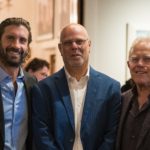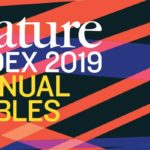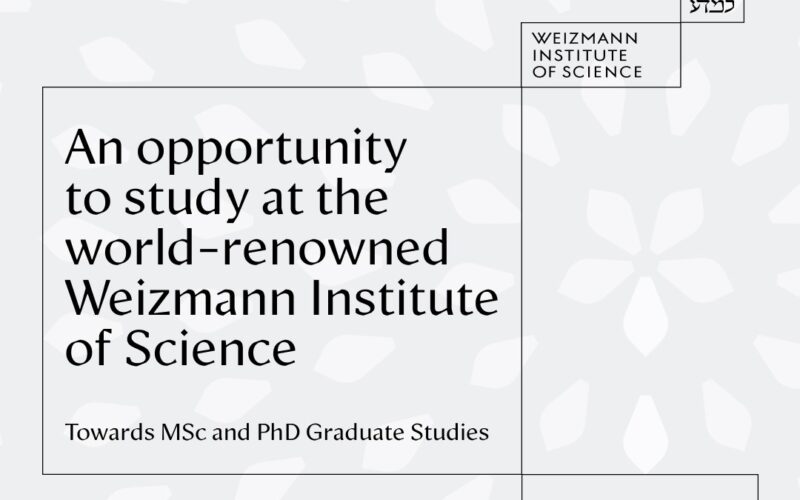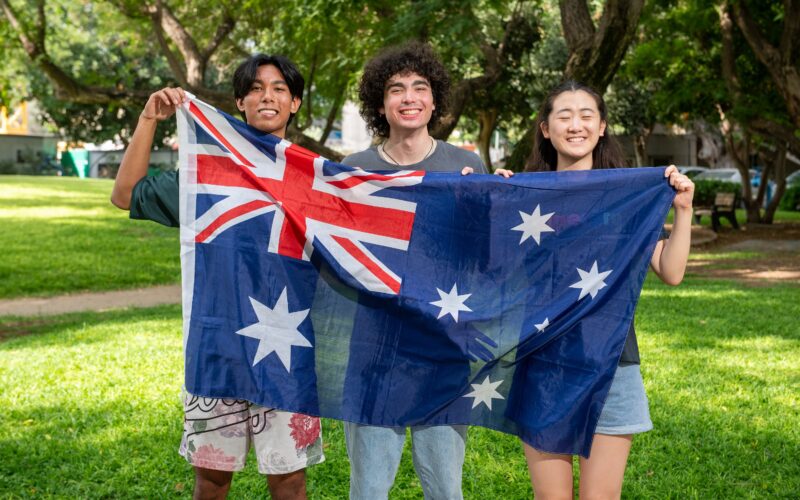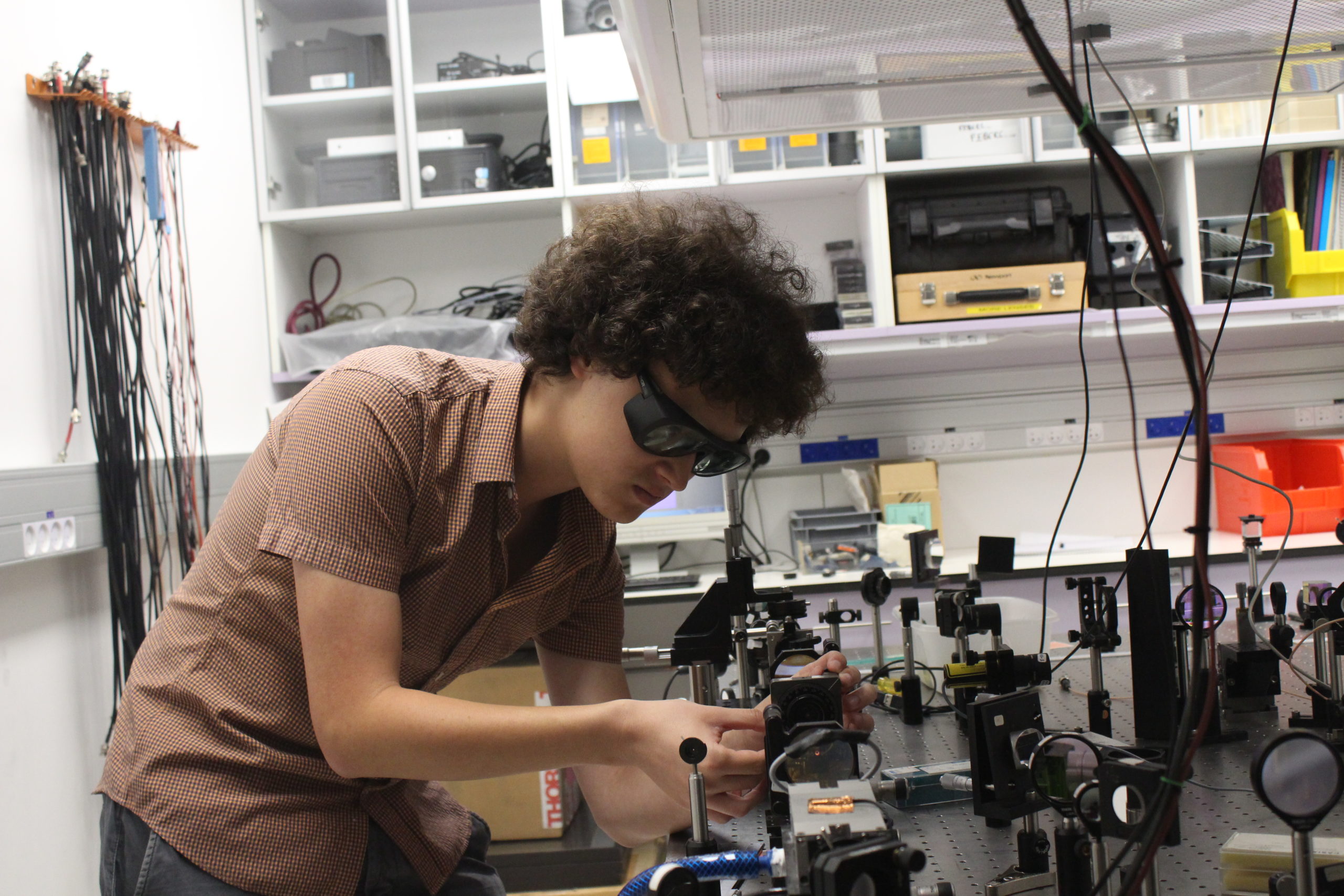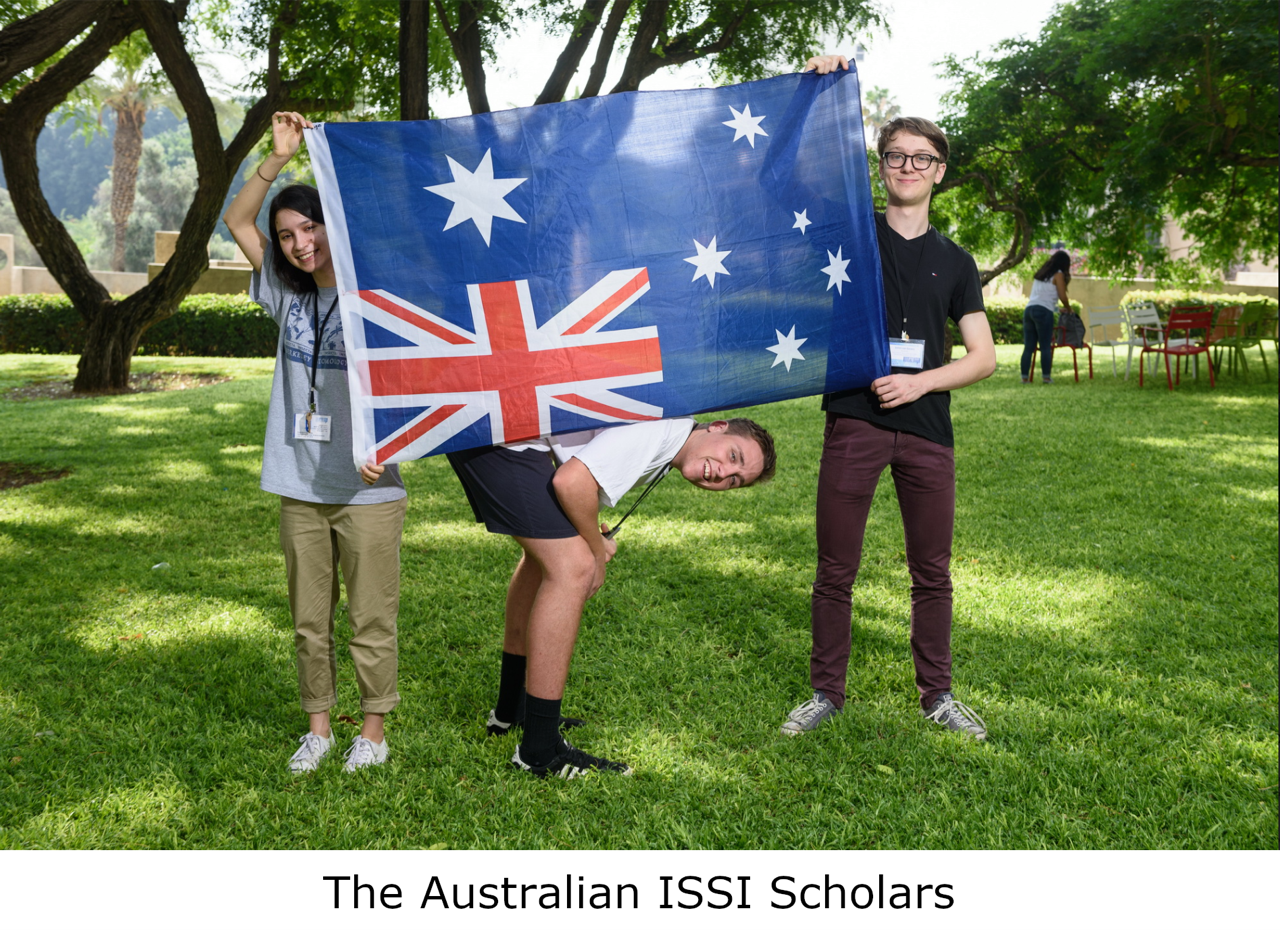
August 26, 2019
In July 2019 three lucky high school science graduates attended the month long, annual Weizmann Institute of Science’s International Summer Science Institute (ISSI) in Israel. These were Caleb McKenna (University of Western Australia), Julian van Gerwen (University of Sydney) and Sai Campbell (Australian National University),
This year the Australian scholarships were supported by the Trawalla Foundation (Sai), the Garvan-Weizmann Partnership (Julian), and Judy and Sam Weiss (Caleb).
At ISSI 73 talented high school graduates from around the world came together to experience scientific research, learn about the Weizmann Institute and life in Israel today.
The students spent the first three weeks on campus working in laboratories where on completion of their projects, they gave an oral presentation and submitted a written report. They also attended lectures and workshops given by senior scientists and visited state-of-the-art facilities on campus.
The final week of the program was spent in the Judean and Negev Deserts, where expert guides led hikes and excursions to acquaint participants with the ecological, geographical, geological, zoological and archaeological characteristics of the region. Such tours are an integral part of the program to give the students a sense of the beauty of the country and introduce them to the history and diverse culture of Israel.
This is what they had to say about their experience:
Caleb
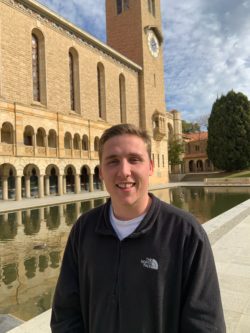 Words struggle to do justice, when attempting to describe my experience at the ISSI. The people, the place and of course, the science, were all incredible aspects that combined to create a unique and unforgettable trip, that has positively impacted on my life in many ways.
Words struggle to do justice, when attempting to describe my experience at the ISSI. The people, the place and of course, the science, were all incredible aspects that combined to create a unique and unforgettable trip, that has positively impacted on my life in many ways.
Firstly, the scientific project, which explored the light-matter interactions of chiral molecules utilising Raman Optical Activity, was a challenging, yet highly rewarding experience in itself. I thoroughly enjoyed the team environment, in which I gained knowledge from my team members and also developed as an individual, including growth in both my general soft skills as well as my understanding of the scientific method.
We learnt to adapt to each other’s strengths and weaknesses, as well as communicate efficiently and effectively. I was in awe at the quality of the facilities we were given access to, as well as the resources we had available to us. I was also very grateful to have an outstanding academic as our mentor to guide us through the project. He gave very clear and concise explanations of complex concepts and provided valuable feedback.
Overall, the project was an experience that has inspired me to continue to explore the world of science, knowing that the possibilities of scientific discoveries are endless.
I also relished the experience of socialising with the other participants, which proved to be a very educational and eye-opening aspect of the trip. All the other participants would agree that the conversations and interactions we had with fellow science-lovers from around the globe was a highlight of the trip. From these conversations, I gained a better understanding of various cultures and ways of life from around the world. I learnt an immense amount from each of the participants, and each of them left me inspired, not only in regard to academia, but also other aspects of life, such as sport, music, languages and travel.
After being exposed to various beliefs and attitudes from all over the globe, I now have a greater ability to view issues from a global perspective and recognise the broader context of a situation. Also, from these interactions, it was evident that scientific endeavour and its associated methods are universal, as the nature of scientific questioning is inherent to us all, no matter the context. I left the ISSI content, knowing that I had made life-long friends from all over the globe.
The aspect of the trip that came as the greatest surprise was the incredible hikes and tours we took part in through Israel’s many deserts and nature reserves. It is an underrated feature of Israel that truly shocked me. The landscapes and wildlife we explored were so diverse, from typical desert dunes to amazing granite rock formations to incredible sea life.
I enjoyed absorbing the untouched feel of Israel’s land, and gained a whole new appreciation for nature and travel. We swam in the Dead Sea, climbed Masada to watch a sunrise, snorkelled with fish and searched for scorpions, all experiences that topped off a truly incredible trip. As well as this, the visits to the many holy sites was a powerful and awe-inspiring experience. Israel exposed me to cultures and religions I had no previous knowledge of, which made the trip all the more incredible.
The Weizmann Institute of Science is a unique institute that expresses a strong belief in the pursuit of science. I was amazed at their attitude towards scientific research, which they believe should be a journey of exploration, and that curiosity suffices as a motive to initiate research. As we heard from the Institute’s President, Professor Daniel Zajfman, and the many academics we were introduced to, it was clear to us that this attitude was unanimously supported throughout the Institute, which was empowering to hear. The passion and drive the Institute displays was something I respected, and something all scientists would desire to be a part of.
When asked how my trip to Israel was, I constantly respond by saying that it presented me with a new perspective on a range of facets of life; some relating to academia, but others to society, global issues and also my own lifestyle. Having been somewhat isolated in the relatively small city of Perth, my ISSI experience opened my eyes to, quite literally, a world of knowledge and cultures, and enabled me to realise where I am situated in a global context.
My ISSI experience will be one I will never forget, and something that will no doubt play a role in shaping my future. The only negative I can draw from the program was that it had to come to an end.
I would like to give thanks to Weizmann Australia for facilitating our trip, as well as supporting us along the way. I also thank The Weizmann Institute of Science, for providing the resources and facilities to deliver an amazing program. Lastly, I thank those who sponsored me, Judy and Sam Weiss, as if it were not for them, I would not have had this incredible experience.
Julian
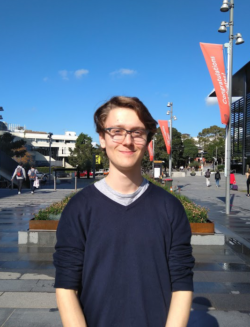 The fact that our bodies are chiral (left-right asymmetric) is something so natural that we are almost never aware of it. From birth we accept that we should have a heart on the left, a liver on the right. Though many may not know it, even our brains possess a left-right asymmetric structure, and many of our cells display chiral properties. But how does this chirality come about?
The fact that our bodies are chiral (left-right asymmetric) is something so natural that we are almost never aware of it. From birth we accept that we should have a heart on the left, a liver on the right. Though many may not know it, even our brains possess a left-right asymmetric structure, and many of our cells display chiral properties. But how does this chirality come about?
My project opened my mind to this fascinating question. We studied the chirality induced by filopodia, tentacle-like protrusions of the membrane that guide migrating cells. On certain protein surfaces filopodia bend favourably in an anticlockwise direction, hence rendering cells left-right asymmetric. We aimed to uncover a mechanism behind this chirality.
I soon discovered that a biological researcher is closest in career choice to a germophobe chef. Sharp and shiny instruments are commonly employed; organisms are marinated in chemical-rich mixtures at elevated temperatures; and great, great care is taken to ensure not a single bacterium contaminates your dish. During the program I had the opportunity to discuss possible career paths with the institute’s academics. Though I began the month worrying about which discipline of science I should specialise in at university, I left knowing that the best researchers focus not on one narrow niche, but are curious about and actively engaged in many scientific phenomena.
In the brief moments outside the lab I got to know the program’s 73 other participants. When the conversation became dry, we talked about what we knew best – our own countries. Every meal became a whirlwind tour of foreign language, cuisine, and politics; every walk to and from our accommodation a discovery of new ways of thinking about the world. Despite this, what drew me closest to the other participants was not our cultural distinctions, but the qualities that united us. Empathy, love of science, and, most importantly, good humour, pervaded the ISSI. Though I have returned to Australia, I know I now have friends who will welcome me in every corner of the world.
I will always think of the Weizmann Institute as a home. It is a home where passion for science and learning transcends all boundaries, where even the world’s fiercest intellects will accept you as their equal, and will pass their knowledge on to you with genuine passion and enthusiasm. I am certain that in the future I will return to this home, and travel once again in Israel.
During my month-long stay I could only scratch the surface of a country that is geographically stunning, socially complex, and dripping in history. The ISSI has already changed the course of my life, and I wait with excitement to see how it will change me in the future.
Sai
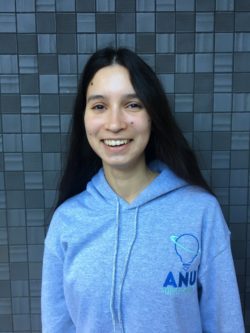 The ISSI was a surreal experience and I still struggle to fully come to terms with how lucky I was to have had such an amazing opportunity.
The ISSI was a surreal experience and I still struggle to fully come to terms with how lucky I was to have had such an amazing opportunity.
As a nervous first year science student the world of research seemed far off and elusive, but I jumped at the chance to conduct real research at an institute as prestigious as Weizmann in Israel. My time at the institute surpassed all of my expectations and left me with many memories I will treasure.
I relished being in the lab under the guidance of my wonderful mentor where we looked at stem cells in leukaemia. I found myself in a team of three, with,an American and a German student and I could not have asked for a more brilliant and enthusiastic team or project. Although the work was intellectually challenging, it was a thrilling experience discovering something new and really having the chance to explore it in-depth.
Our lab group had an amazing synergy and sense of humour and we found ourselves frequently causing a racket with our laughter. As younger university students, we rarely have the opportunity to do real hands-on lab work with practical applications which is why I was so excited to be able to carry out the protocols that, at that point, I had only ever read about. I also learned that science involved a lot of mistakes and, from that I learned, the virtues of patience and creativity.
Furthermore, I was equally inspired by the passion and zeal that I saw in my fellow ISSI students who came from variety of backgrounds but shared a common love and curiosity for science. By working with talented, yet also humble, students from around the world, I gained new perspectives on science as a discipline and on one’s approach to academic pursuits.
My fondest memories will be excitedly chatting about some exciting recent discovery in science and learning about each other’s research projects.
Beyond the lab, we participated in a range of fascinating cultural excursions and social activities. Our trip to the desert was most certainly my favourite as I was enthralled by the gorgeous landscapes and unique flora and fauna. Perhaps the biggest surprise was finding gumtrees, an Australian native, all the way in Israel – an unexpected reminder of home! We spent our time there hiking, stargazing and looking for native animals, and the serenity and calm of a silent desert night is a memory that will never leave me.
Even more spectacular was being able to see in person all the sites and places I had read about in history books and learned in class. I was perhaps a bit too overexcited about visiting Jerusalem, during the entirety of which I had my mouth gaping in excitement.
I fondly recall our sleepover in the desert after which, just before dawn, we hiked up Masada, riding a rush of adrenaline as we earnestly speed-walked our way to the top to see the sunrise, which we just managed to catch.
My experience during ISSI strengthened my conviction to pursue a career in research. I was inspired by the camaraderie found in the lab and the true dedication our mentor showed in embodying the definition of a scholar.
I cannot express how grateful I am to have been given this opportunity and would like to sincerely thank the Trawalla Foundation and the Weizmann Institute for allowing an aspiring young researcher to have the adventure of a lifetime.
Watch their video:
See their photos:
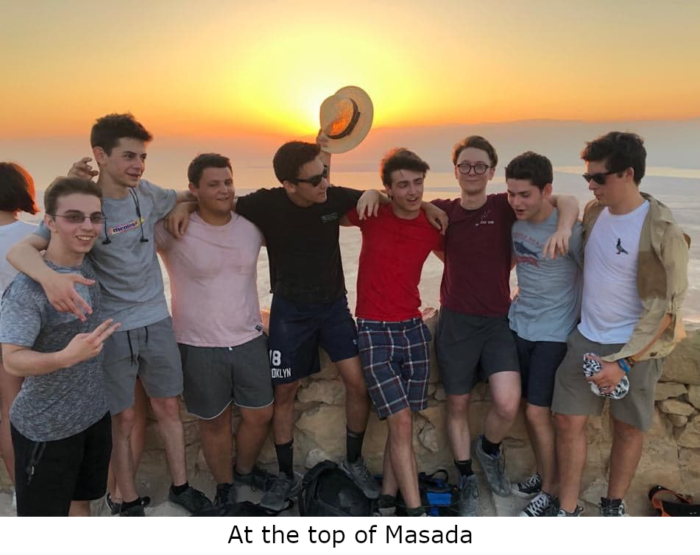
At the top of Massada
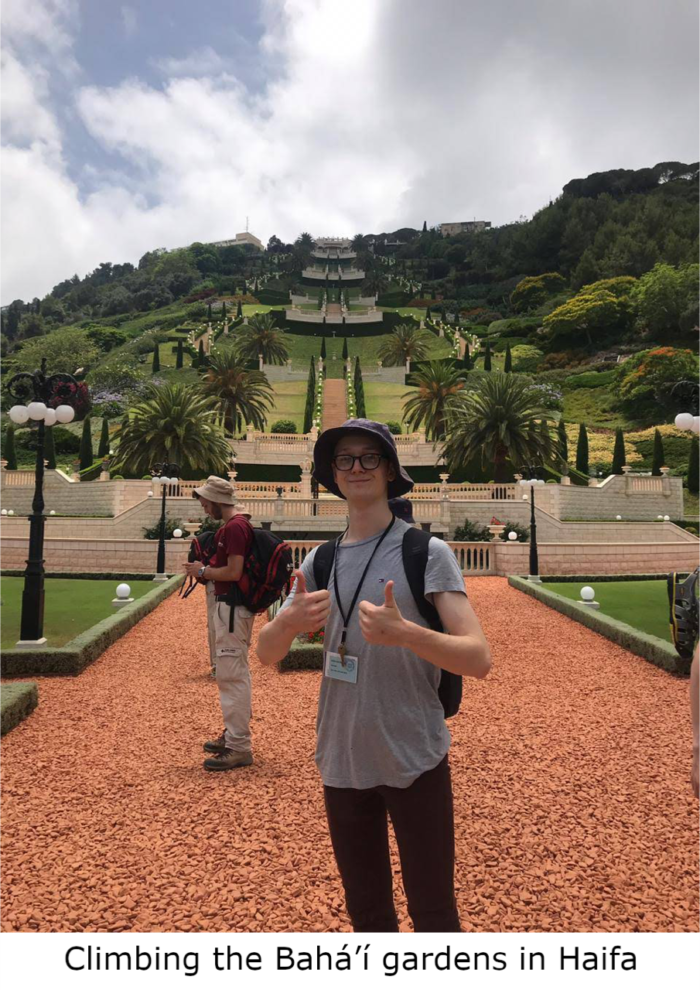
Julian in the Bahai Gardens
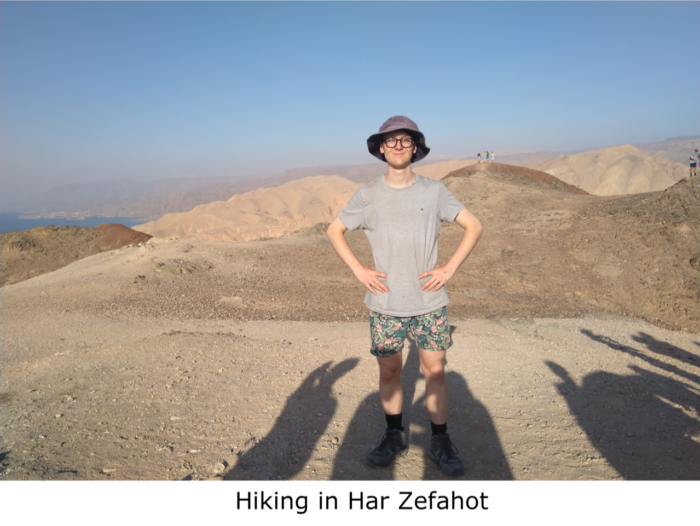
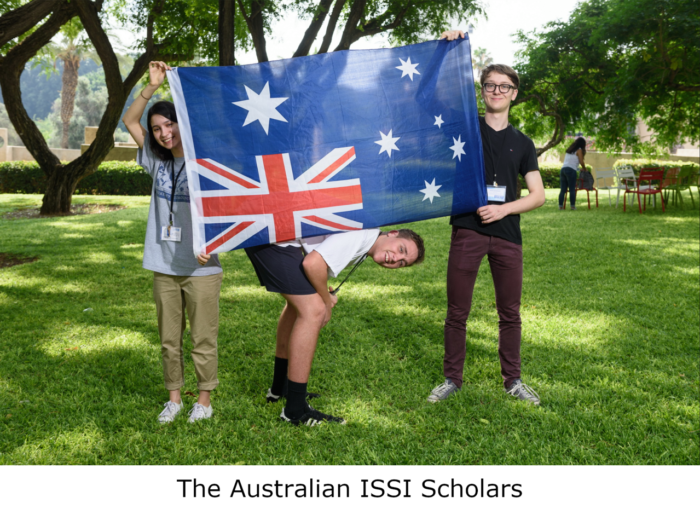
Sai, Caleb and Julian
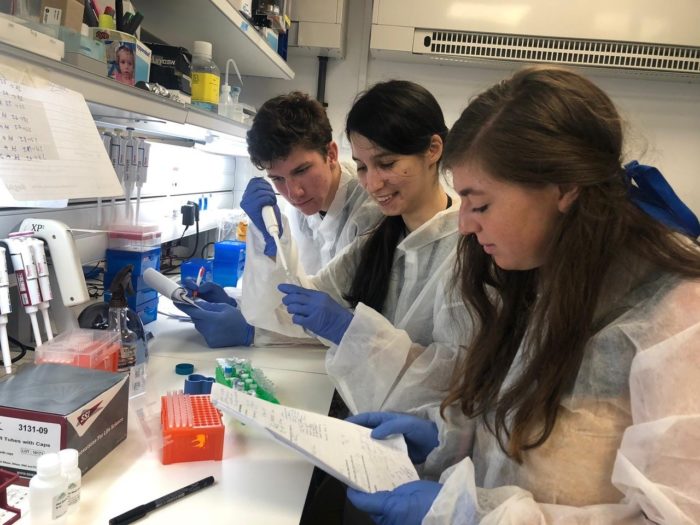
Sai in the lab with colleagues at the Summer School in 2019
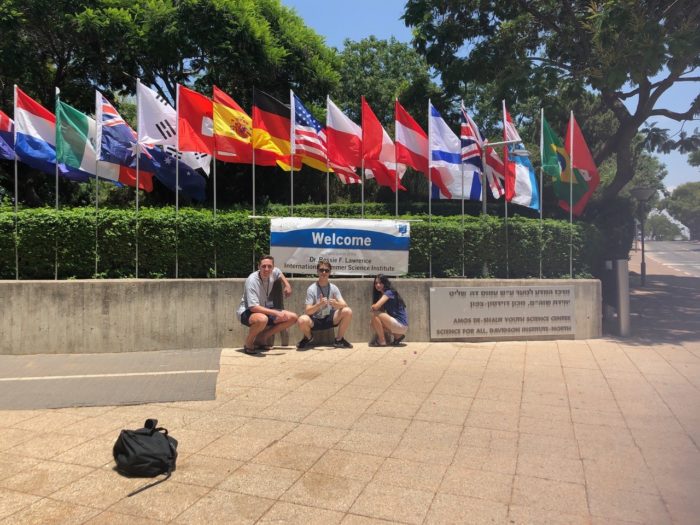
The Australian group in front of the welcome flags
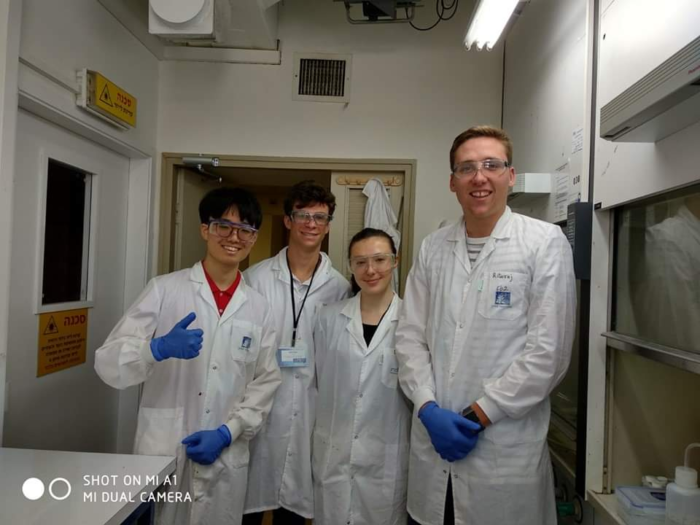
Caleb and his laboratory partners in a chemical laboratory at WIS.
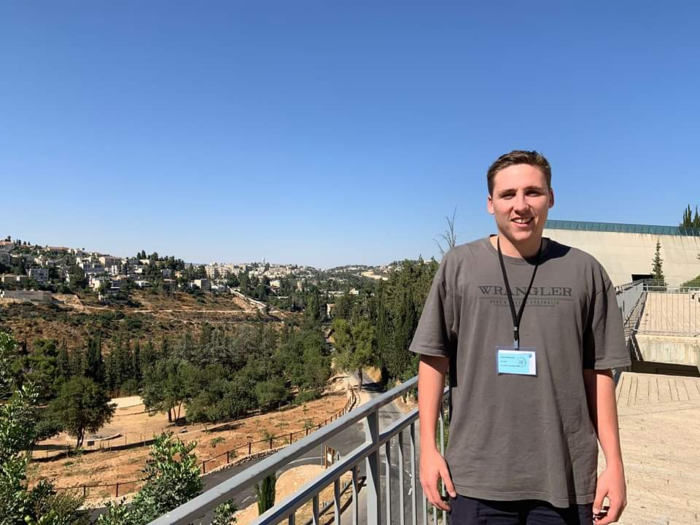
Caleb, atop Mount Herzl, next to Yad Vashem Holocaust Museum

Caleb floating in the Dead Sea
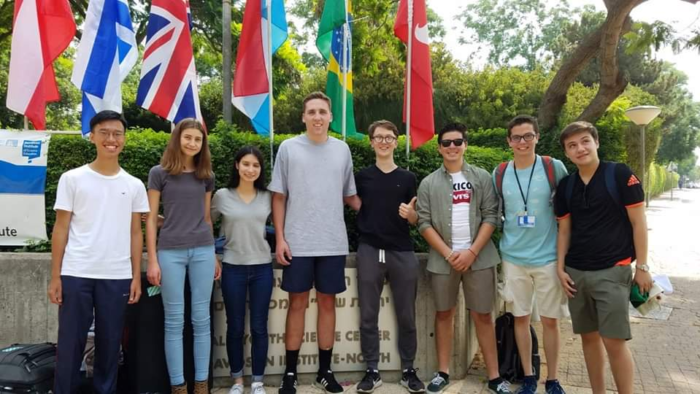
Upon arrival to the Youth Village. The three Australians centre, with the three Mexicans; Antonio, Mateo and Riccardo, on the right. The new Zealander, Xenia, to the left, and Sunny from Hong Kong to the far left
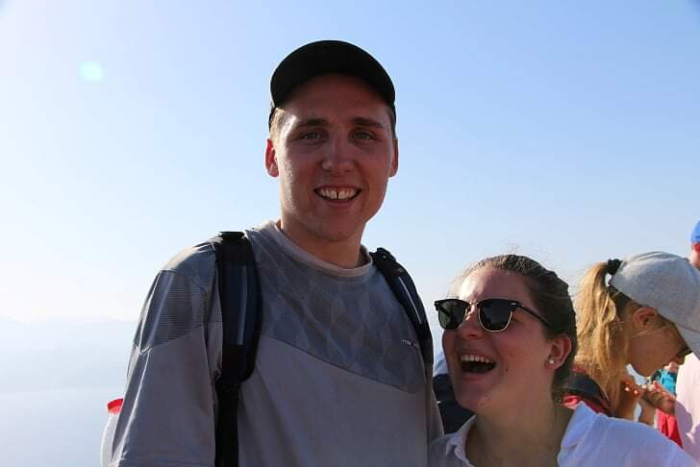
) Caleb smiling with Clara (Austria) during one of the Hike’s through the Negev
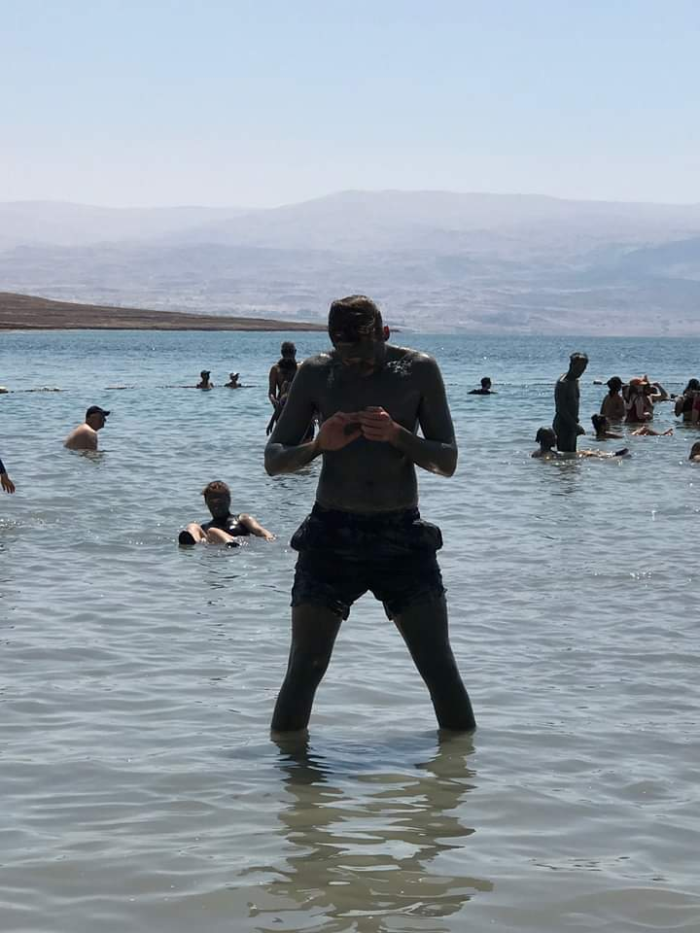
Caleb covered in mud in the Dead Sea
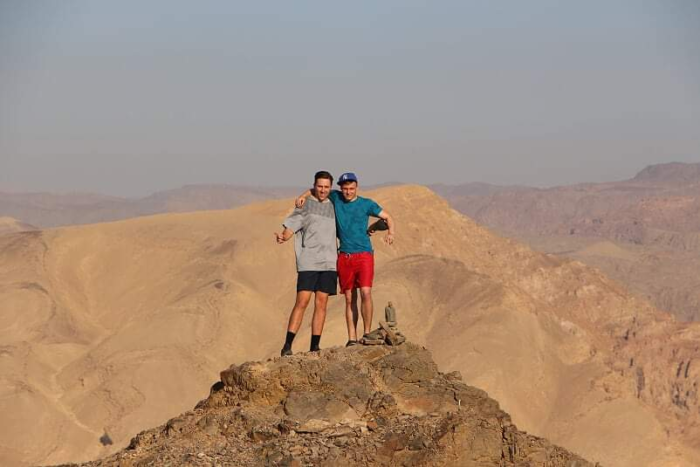
) Caleb atop a mountain in the Negev alongside Jonathon from Germany
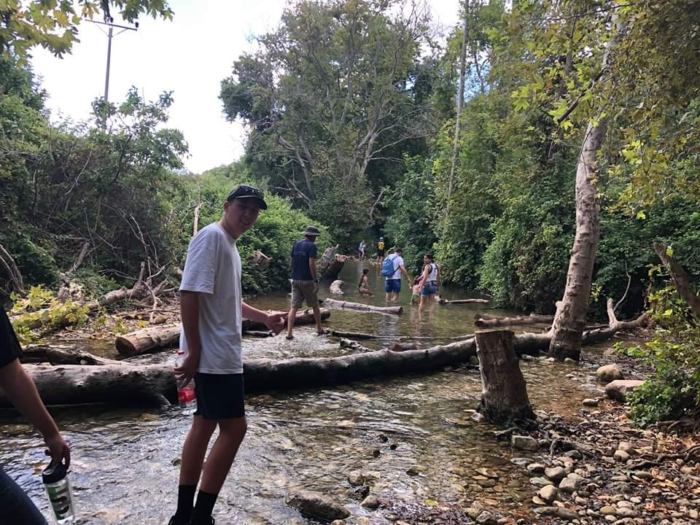
Caleb exploring one of Israel’s freshwater streams
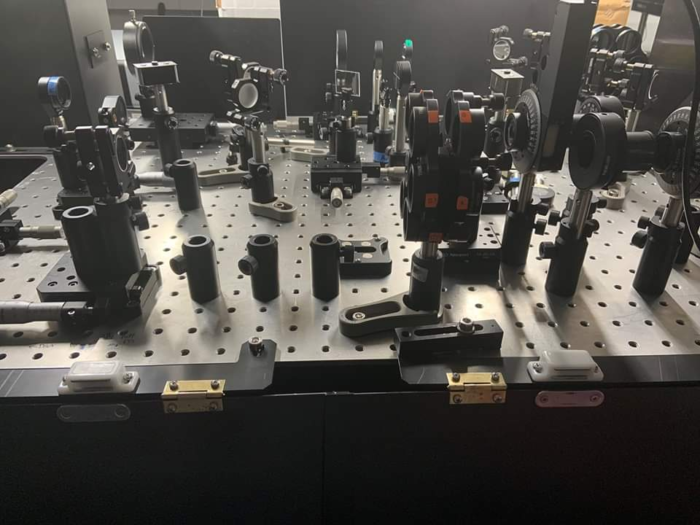
The optical setup used in Caleb’s lab
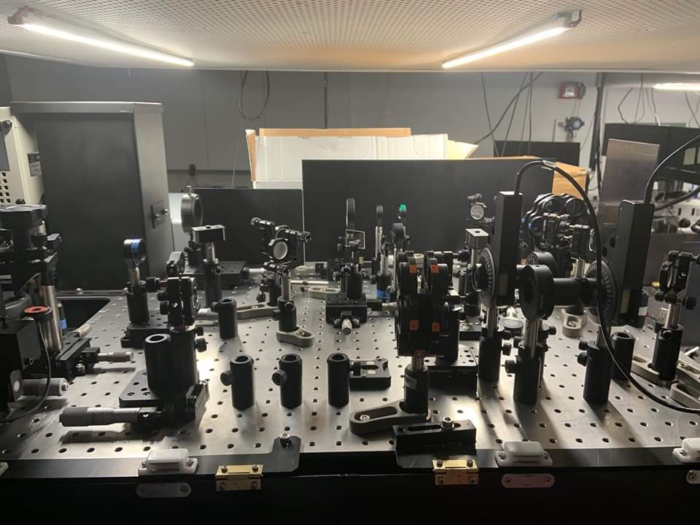
The optical setup used in Caleb’s lab
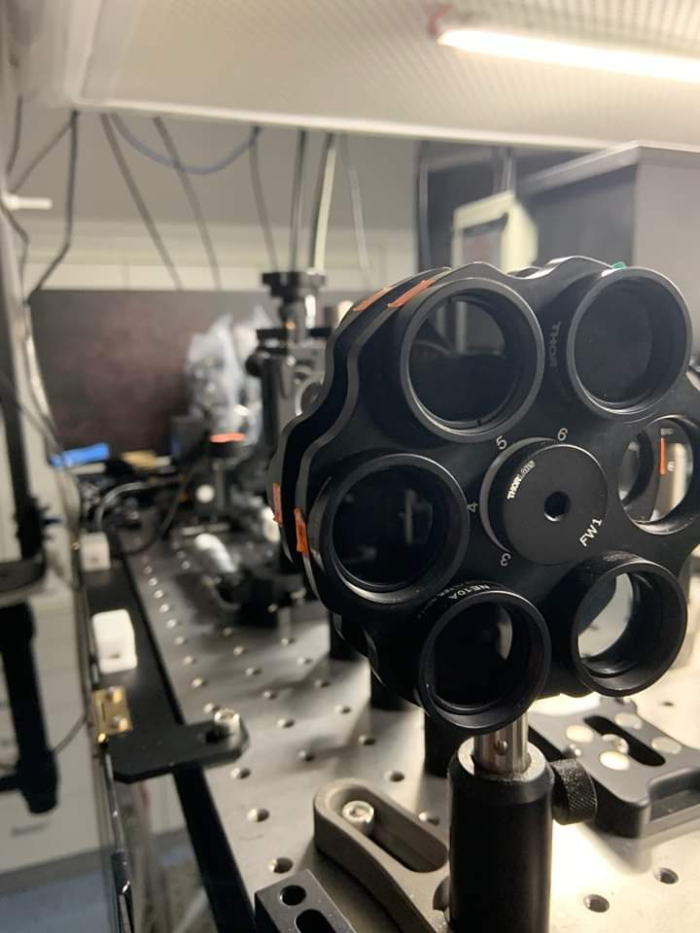
The optical setup used in Caleb’s lab
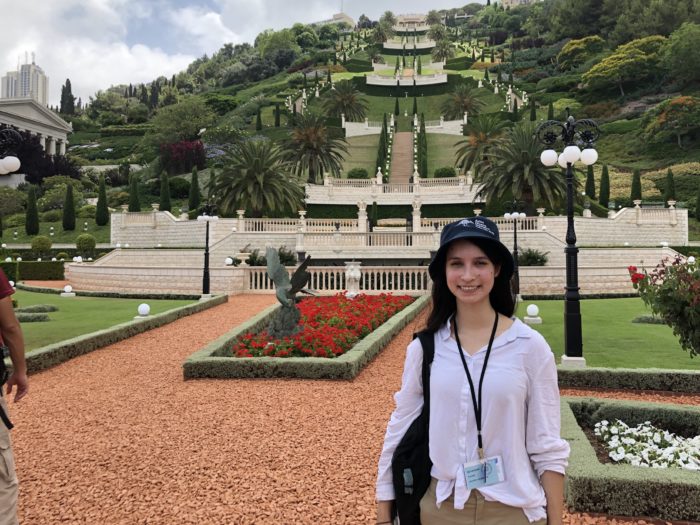
Sai in the Bahai Gardens
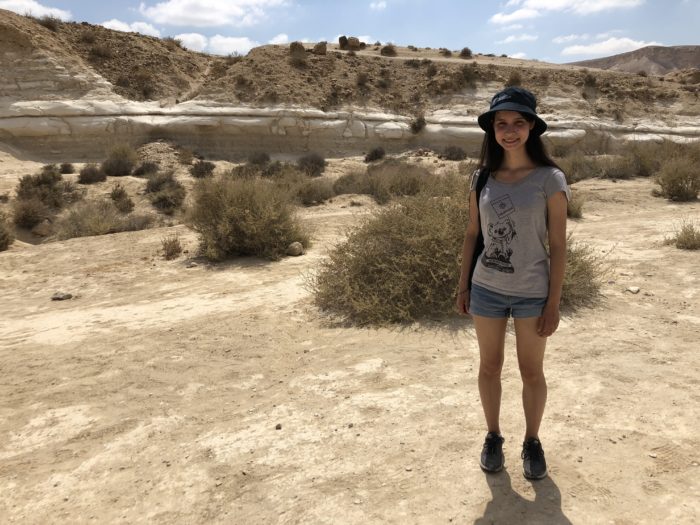
Sai during the desert hike
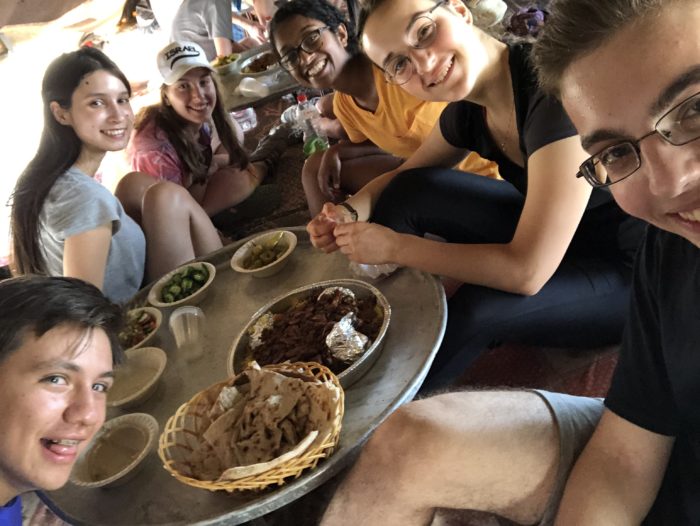
Bedouin Feast
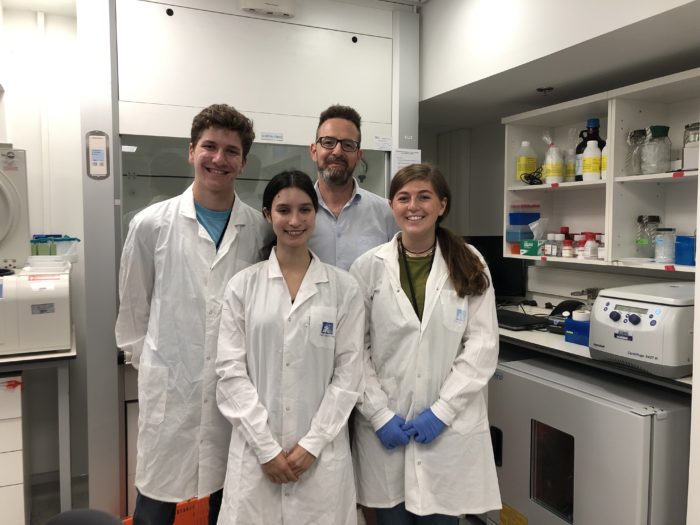
Sai’s lab group and mentor Dr Aviv de Morgan
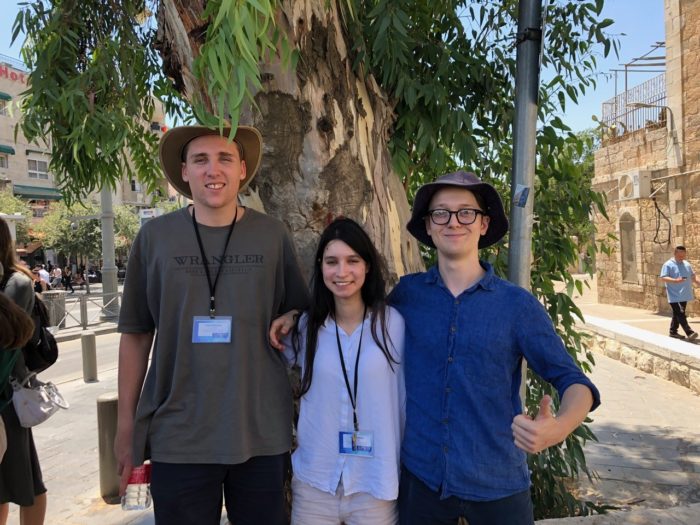
Out and about
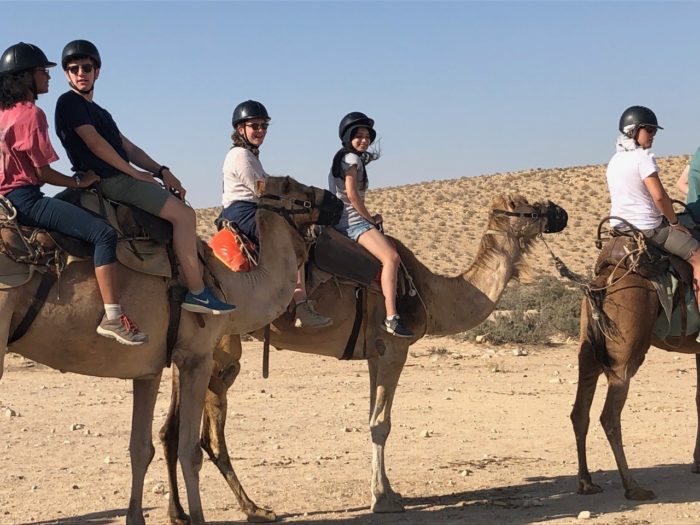
Out on the camels!

